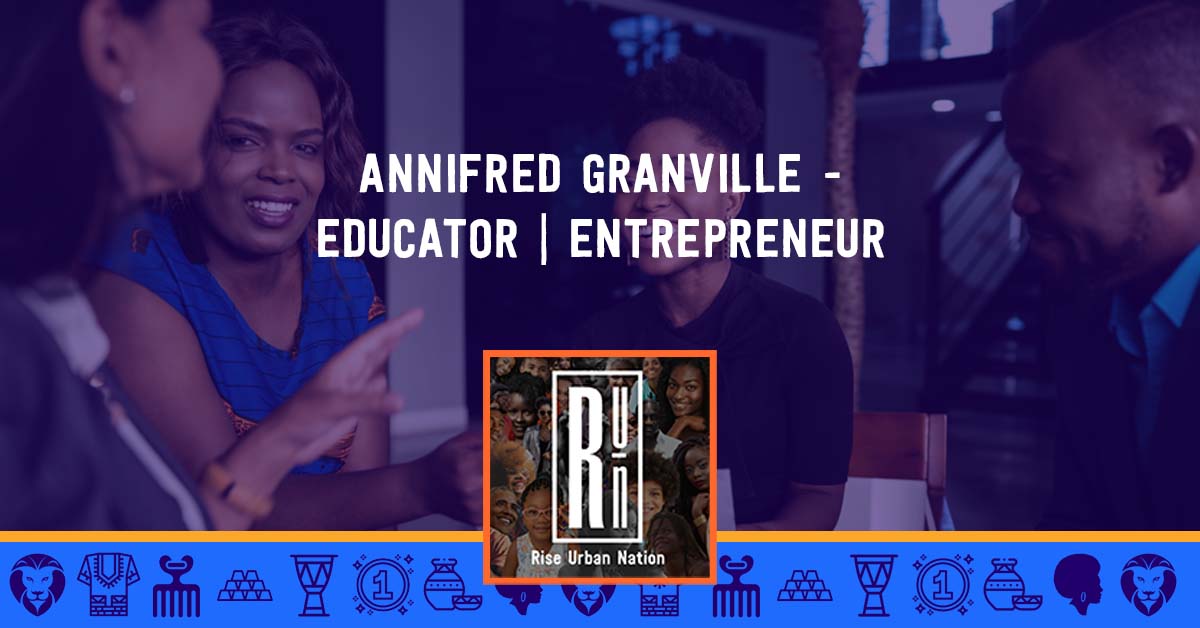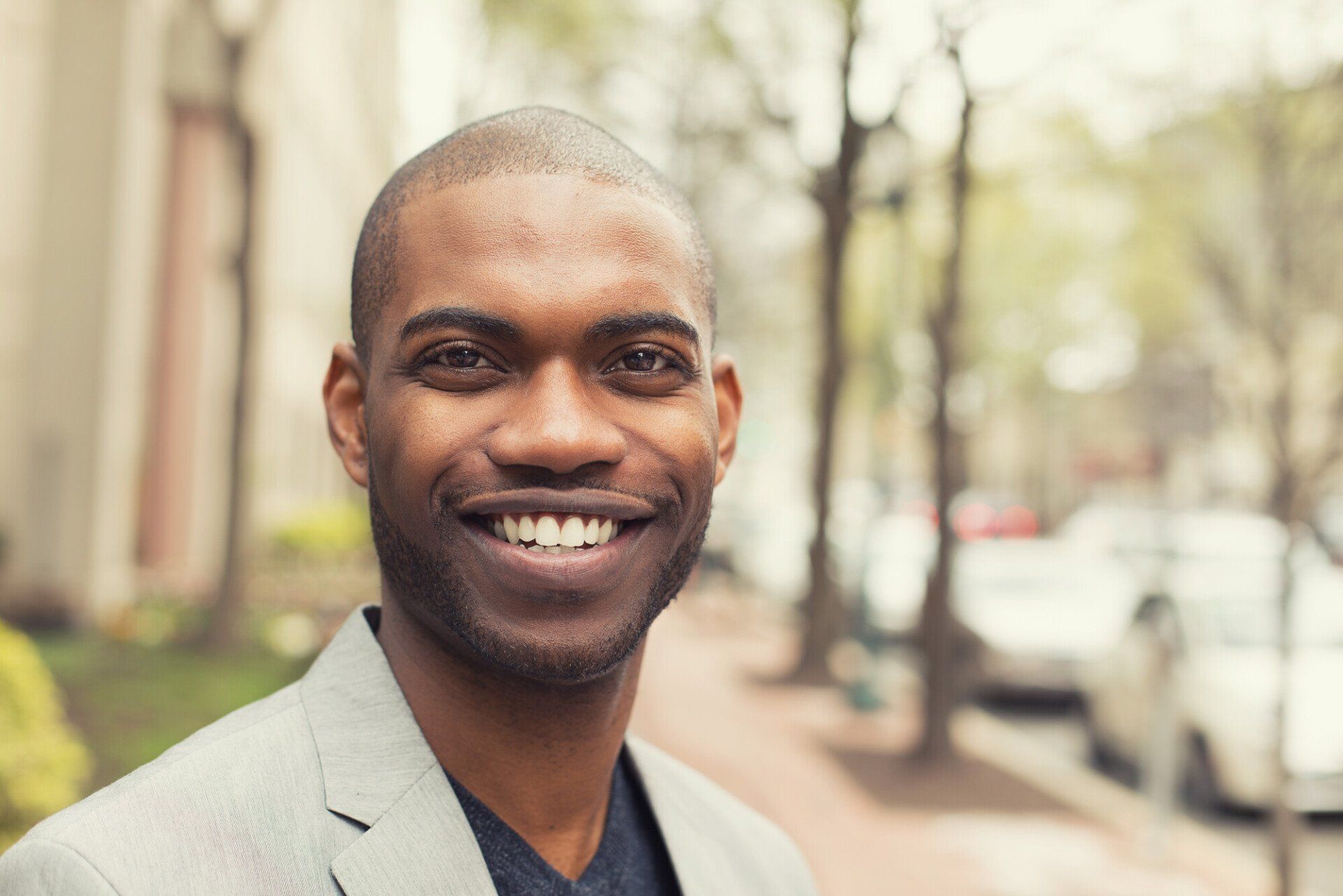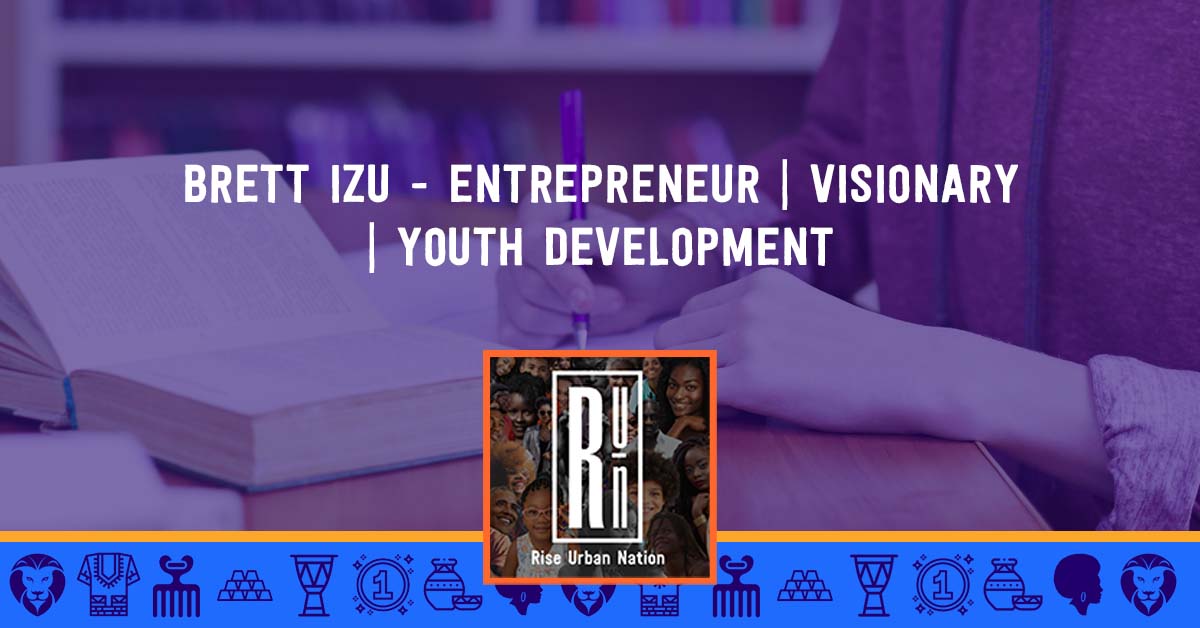Annifred Granville - Educator | Entrepreneur

You can never undermine the influence of people in any journey. Annifred Granville is a young entrepreneur who never undermines the effect of networking on your way up the "entrepreneurship ladder". In this episode, she talks about meeting Adesola and becoming part of the RISEpreneurs team. Annifred hopes to inspire, motivate, young and skillful black entrepreneurs helping them fuel their passion as global solution providers. RISEpreneurs creates an avenue for me to do all this as it gives me an opportunity to virtually globe-trot, meet with and convince business owners who have paved paths as well as marked territories in their industries to share their stories via the RISEpreneurs podcast.I am the lady to speak with if your business journey will inspire someone to achieve a greater feat.
Connect with Anne:
Website: https://flutterwave.com/store/annecessories
Instagram: @annecessories_inc
We are currently surveying our listeners (or viewers) to learn more about you. Please take a few minutes and visit our website and click on the 'Listener Survey' link found on the home page. Thank you.
---
Listen to the podcast here:
Annifred Granville - Educator | Entrepreneur
In this episode, I’ll introduce you to the one and only Annifred Granville. She's on our RISEpreneur Team. I met her through Sola. She is another one of Sola's many individuals that she knows and introduced me to. She joined our team to help out with a lot of the foundation and some of the products and services that we'll be coming out with in the future and helping out with the operations.
She owns her own jewelry business. She's a young entrepreneur who never undermines the effect of networking on your way up to the top of the entrepreneurship ladder. She's been able to do that throughout her lifetime. She hopes to inspire, motivate young and skillful Black entrepreneurs and help them fuel their passion as a global solutions provider. She's been able to help me do that and my business and also Sola do that within her business and the many different ventures they have collaborated on.
I was excited and enthusiastic to have her a part of the team and help us in so many different ways as she helps the RISEpreneurs create an avenue, not only for me but everybody who's involved as we start to connect with Blacks and Africans around the diaspora. I want to introduce you to this young lady and have you tune into her business journey. Hopefully, her story gets to inspire some young woman out there who's looking at taking that leap of faith as well.
---
Welcome to another episode. We've got a special guest in the building, Annifred. She is my boss. She's in charge of product services. Sometimes, she helps out with marketing too. I'm glad to have her as part of my tribe and team. I wanted to get her on to talk about her journey. I was introduced to you by Sola. I remember when I first started this journey when Sola came on as a business partner. I was like, "Sola, I have no work capacity. I need help." She said, "I got the perfect person for you." That's how I met you, but I never got to hear the story. How did you and Sola meet?
I've known Sola for years. It was interesting. I got to know her through somebody too. I was referred to her like, "I need somebody who's going to listen to my thoughts and get them down." Here I am. I was referred to her and I'm like, "Don't worry. I'm going to learn the job." It's been an amazing decade with her, fun and very educative. She has grown to become a boss, mentor, sister and all of that.
It's hard not to do that when you meet Sola because she's full of life and energy. Boss is a word that comes to mind. I was doing another interview with another guest that's known Sola too. He's like, "She's the boss." She likes to talk when you give the word in.
She likes to talk and her thoughts are amazing. She thinks 1,000 words in a second. I'm sure that's what it is with Sola.
I like your story because your story is amazing, what you do with youth, you have two kids yourself and you got your own business with the accessories. There's probably more to you that I don't know, but I do know those things from that. I'm curious and I like to ask this question because what I find is when I go out and do presentations to youth, other young people or even adults, I'm always amazed by their journey, like what's the first job they had into where they are.
The reason why I asked that too is that there's a lot of things that you learn from your first job that helps you grow or lessons that you learn that help you grow in your career. Also, to show the young people, it's not where you start, it's where you finish. Everybody has a starting point in life, but those starting points could be good lessons to the great beginnings of bigger and better things. What was your first job?
If you want to do business, never undermine the influence of networking. You have to build the right relationships with people as regards what it is that you do.
Interestingly, my first job was my job with Sola. I'm sure she was even wondering like, "This person is still young. Is she going to be able to keep up?" I'm glad it was because Sola is many things. She's gifted, business-driven and very ambitious. Your first job will tell how far you go. I can't say I am where I want to be, but I'm grateful for the person that is Sola that nurtured me to where I am and where I'm still headed. I'm grateful for the gifts with Sola and my first job experience was with her because it wasn't cutting corners for me at all. It was the real deal. I'm with Sola. It's either you were there or you were not.
Was this job that you did with her, her first business? What did she have you doing?
I was her assistant.
She's fast-paced too. To be an executive assistant is quite challenging. People don't know how tough, hard, very detail-oriented and everything you have to be an assistant to an executive assistant. It's a high-demand job sometimes.
Especially with someone like Sola. Sola always thinks best ideas. It's interesting and one of the best and remarkable journeys that I have been on in my life.
With your side hustle/entrepreneurship journey because you are in accessories, when and how did that start? What was the idea? I like the play on the name too. How did you come up with that name?
I used to have a very good friend at a time who helped me out with the name Annecessories. It was birthed from a place of I like jewelry. There are almost five women who will pass you. You hadn't found anyone without a piece of an earring, finger ring or something. There was this thing about women and jewelry. I enjoy picking them out for people. I'd have my friends at the time say, "I'm attending the function. What do you think I should pair with my dress?"
I'd have somebody say, "Someone's getting married. She wants me to help her pick out her jewelry. Can you help?" It was fun doing that and I figured, “Why can't I turn this into something other than loving it? I could earn from this as well and have fun still earning.” That was how Annecessories birthed. I started to find out where I could source jewelry and what kind of jewelry stones. I had to read all I could about jewelry and that's how we got to where we are.
 Networking: Never undermine the power or the influence of networking, knowing people, talking to people that will drive you in the right direction. And of course you don't just stand up and become an island.
Networking: Never undermine the power or the influence of networking, knowing people, talking to people that will drive you in the right direction. And of course you don't just stand up and become an island.Say if a little girl is reading this and she's like, "I love jewelry too. I always wanted to get into that world, but I don't know how," what were the steps you took to get into the jewelry or accessories business that you can give that young little girl looking at your career pathway?
I will never undermine the power or influence of networking, knowing and talking to people that mattered. You can talk to anybody and then nothing will still happen but talking to people that matter can drive you in the right direction. You don't just stand up and become an island. I already had done my job. I had moved on to a couple of the jobs as well. I had a little bit of experience, not in that field I wanted, but I already knew what it would be to manage or build something from scratch and make it your own.
I started to find out that knowledge is important. I had to gain knowledge about what I wanted to do. It wasn't enough for me to be picking out jewelry. I had to know about jewelry, a little bit about fashion and follow trends. Knowledge is an ongoing process. You never get enough knowledge. Knowledge is important. If you want to follow a passion, you have to know about it. You never stop learning about something except if you want to do it on a very platonic level.
If you want to keep expanding or growing something, you have to keep knowing about it. I had to gain more knowledge. I also had to talk to people. I had asked people, "You have bought this thing before. Where did you buy it from?" Social media wasn't exactly where it was when I started the business. It was Facebook. I'll tell a friend or colleague like, "I have this. Do you know somebody who needs this?"
I talk to people. You can never undermine the influence of people in any journey. Especially if you want to do business, you never undermined the influence of networking. You have to build the right relationship with people as regards what it is that you do. You have to be the brand. I had to wear and look the brand. This might sound like a flock, but if you barely wear a pair of earrings, how do you want them to trust what it is that you say you're doing? I wasn't very big on fashion, but for the sake of the business, I have to start doing it.
I can see you even accessorize. You got the earrings, necklace, a bracelet over there, so you have become the brand. You're a walking and talking billboard. "You want this? I got another one for you. Let me show you."
The truth is I have sometimes sold jewelry of me. "This is nice. Where did you get it?" "I sell it." "Can I get this one?" "Yes. I'll get another." I've had and done that before.
I love that you said networking because networking is something that I always tell folks, "Your network is your net worth. You got to get out there and network. It's not just about what you know all the time. Sometimes you need to connect with the right people that can get you into different places and spaces and allow you to connect." What was one good lesson you feel that life has taught you during this journey of yours?
One thing I had to learn is how to be deliberate. Most times, we're passionate about what we want to do as entrepreneurs, but we let the passion get the best of us, so we're not deliberate. We go ahead and go with the flow. Passion is not enough for entrepreneurs anymore. One lesson thing I learned was that if you want those things to work, you have to be intentional about your business and the decisions that you're taking concerning the business. You have to watch, grow and learn.
For you to watch, you have to be looking out for certain things in particular as regards your business and brand. I want those brands in here at this time and I have to do this about it. Starting my jewelry business was a passion. I enjoyed picking out jewelry, but it wasn't enough one year down the line. I wasn't the only person doing jewelry. What sets you apart from these other people is carving out the niche, so you have to be deliberate. The lesson that I have learned and I'm still learning as Annecessories and an individual is being deliberate.
To all my tribe reading, be deliberate. Sometimes that takes you sitting down with a mentor, an expert or somebody who's done it before and getting the inside scoop, the 411 of how to make your brand or business successful. If you don't have that, set out a business plan of how you're going to launch. Even when we're talking about branding, I caught what you're saying too is that branding is very important. Sometimes defining what your brand is, your brand's voice, personality and market will help you be deliberate when you're game planning if you want to go to market.
We're passionate about the things that we want to do as entrepreneurs, but we let the passion get the best of us.
What's some advice you would give to someone who wants to start a career in your industry? You're not the only person in the jewelry industry. I'm pretty sure it's grown and expanded. It looks different than it did many years ago. What is some good advice for somebody wanting to start a career in this industry? What does that look like?
First things first, I'm big on solution providing. Are you providing a solution in your business? That has always been a thing for me. In the journey of the brand Annecessories, I've had days when I'm tired. Nobody's asking me, "What are you selling?" I've had times when I'm like, "People are doing these things bigger and better than I am. What am I exactly still doing here?"
One thing is that on days like that, the thing that keeps me going is the fact that someone bought something from me before. They call me and says, "I need this thing." It means to me that I had at the time provided a solution to the person's problem in the past. There's this saying that was funny to me at the time I heard it, but it applies every time. “There's room enough for all the birds and not one bird is trying to outfly the other.”
There's room for everybody. Make sure that you are providing a solution. It never goes out of style. People will keep coming back to that thing that met their needs. They have a need. You meet it. They will keep coming back. If they find somebody else who has that same need, go to this person. Are you a solution provider or a side hustler?
That's so important because that's what keeps you in business for a long time when you're a solution provider. If you're either fixing a problem or providing a solution, 1 of these 2 things will keep you in business. I love what you said about there being enough room in the sky for all the birds to fly, which means you have to have a mindset of abundance. That's so important to have that mindset of abundance.
A lot of us hustlers, go-getters and entrepreneurs, sometimes when you switch to this mindset that there's not enough room for everybody, you start to make decisions based on scarcity, the scarcity mindset. That's not a healthy way to run your business or live life. I love that abundance mindset that you bring to the table with that quote. What do you think the future has in store for your industry and entrepreneurs, not just in Nigeria but across the world?
The future is about to get more interesting because there's something new every day that can make you bigger and better. No thanks to COVID, but every business is global. Everybody can see and hear from your business everywhere, regardless of where you are. I feel like the world has even become a level playing field for everybody.
You first need to know where you want to be and then make sure that you are exhausting all the opportunities and avenues to get to that place where you are going. I feel like it's about to get even better. The business world is growing and so are the opportunities and resources. The people who know how to maximize will be making the headway. The future looks interesting.
I am optimistic about the future. Many thanks to people like Sola because they never get tired of charting new courses. "These people need this." That's what we were saying about fixing a problem and finding solutions. Someone like Sola will be like, "I haven't been able to do this. I found out that this number of people are trying to do this."
 Networking: You never get enough knowledge. It's an ongoing process. Knowledge is important and you never stop learning about something if you want to keep expanding or growing.
Networking: You never get enough knowledge. It's an ongoing process. Knowledge is important and you never stop learning about something if you want to keep expanding or growing.That's one thing that I picked up from her. I picked up that whole solution-provider fixing a problem from Sola. If something bothers her today, she'll find ways to make it work tomorrow. For entrepreneurs everywhere, there's no limit to your business. Find the resources. Push it, follow it and make sure that you have everything covered. You're going to get to where you want to go in one day. It's a process. If you're steady, consistent and intentional, there's no limiting you.
This conversation right here proves that COVID has made the world a lot smaller because people are intentionally working in a global capacity. You came aboard the RISEpreneurs show. You're all the way over in Nigeria. We're working and in business together. I have a sense that a lot of people are doing that.
I was having a conversation on the other radio show that I hosted. One of my cohosts, Mike, The Money Guy, he and I had decided to jump into Clubhouse before we went on air. We were talking about the state of Black America and entrepreneurship. An interesting dialogue came up in that room where we talked about some data showing that Black women and African women are the new entrepreneurs. There's a high number of them, especially in the US. Is it the same over in Nigeria? What do you think is driving more women to become entrepreneurs and have that entrepreneurial spirit that's outpacing men at a great rate? What are your thoughts on that?
It's pretty much the same thing over here in Nigeria. I don't know why but it keeps dragging me back to providing solutions and fixing a problem. Women are supposedly homemakers, the ones who nurture both children, build a home and all of that. The world as it is is making the role of the woman having more things to do than they used to have because, in the past, women will be homemakers, especially in Africa, way back before technology and all of that.
There were only very few but the need to have multiple sources of income, make sure that the home is comfortable and your children have the best life, women are announcing, "You can't be the only one bringing stuff to the table. If my children are going to be this uncomfortable, I have to bring things to the table as well."
To make the home as comfortable as possible, especially finance-wise, women have found out that they have to get somebody to help them with this. The entrepreneurial spirit rises when they go out looking for that service and don't get it. “I'm looking for this and I don't have somebody to do it.” It means five other people out there are looking for this service. I'll give you an example. There's somebody on Instagram. I found her out. She's called The Pepper Woman.
The Pepper Woman is somebody who goes to the market, buys tomatoes and pepper in bulk, blends them into a paste and puts them in bowls ready to pop into your pot. That woman is on one end. There's another woman called the Royalty Farm Fresh. What she does is she has a meat place with whatever protein you're looking for. She has fish and meat all chopped up into ready to go into your pot, cleaned out. All you need to do is wash the bowl and pop it in your pot.
Passion is not enough for entrepreneurs anymore. Now, you have to be deliberate. You have to be intentional about your business. You have to watch, grow, and learn.
A working woman doesn't have to bother about, "I have to do market runs after I'm done from work." That is providing a solution. I'm sure there were women, at some point, who was working and needed to make the home as well and found out that nobody was doing like, "Here you go." That's what's driving the women over here. There's the need to balance, building a career and running your home or making sure that your children, your husband or the home front don't suffer so much for the career that you want to build.
I noticed that you said and this came up in our Clubhouse too, how women are not only finding solutions but leaning into each other for solutions, asking questions and getting help. That's one thing I see to be uniquely different from men in business, where I feel that sometimes men, when we get stuck in business, the macho side of us is like, "We will figure it out," instead of asking for help. Do you think it's the same way over in Nigeria and the culture of why women are maybe a little bit more successful in growing and creating a business at a higher rate than the men? Do you suspect other things may be involved? If so, what are those things?
I'll go back to the same illustration I gave. You see The Pepper Woman and The Royalty Farm Fresh as different people. During Christmas, people would be cooking a lot because they would have guests and family over. They came and did great things together. That's what it is. It's responsible for that. A man's way is, “Everybody looks up to me. They expect that I should be able to figure this out as a man," but women understand.
It's not just Nigerian men but African men. The African culture is a male-dominated society here in Africa. That's how it has been. It's not something that just even started. It has been like that. Besides that, a woman's place also. When I go 1, 2, 3, 4, 5, 6 steps, I sit back and think how the six steps have affected the other things around me. That's why female businesses are thriving. It's not decision-making and they're flying. No.
There are times when women sit back like, "Should I give up?" In that place of giving up, she's looking and considering how her business or decision so far has affected her. In that place of thinking through, checking and balancing, you'll be amazed at how much growth comes out of it. That's another thing that's helping businesses. Women like the community a lot. They might not be the best of friends, but you see that communal thing, especially here in Africa. It's like a sisterhood. It helps a lot.
 Networking: There's no limit to your business right now, find the resources, push it, follow it, and make sure that you have everything covered. You’re definitely going to get to where you want to go. If you're steady, you're consistent. If you're intentional, there's no limiting you.
Networking: There's no limit to your business right now, find the resources, push it, follow it, and make sure that you have everything covered. You’re definitely going to get to where you want to go. If you're steady, you're consistent. If you're intentional, there's no limiting you.If you go on Instagram, you find a lot of them, especially in Africa. "I do makeup. You do this. Let's collaborate. I do this. You do that. Let's meet." There are female network events that they do. She leads Africa. You have women coming together like that. We don’t necessarily have to be friends, but we’re speaking about moving in the same direction. To an extent, we’ll hold hands and get to a point. If it was not working at that point, everybody goes their separate way, but we have moved from point A to point B. At point B, we eventually will find different partners or helpers and then we're moving. That's what it is that's helping the women if you ask me.
I've had some great women around me that I've always sat and thought about, which made me want to create this platform RISEpreneurs so that we can create a tribe and community between Blacks and Africans in the diaspora. From my upbringing, I see there need to be more spaces like this that allows us to build community globally, internationally so that we can rise through all the different challenges that we see both here in the States, in Africa or any other Blacks out there from the UK and so forth.
We all seem to have a common bond of a certain type of struggle when it comes to our status in the world and moving up that ladder to achieve success, whatever success looks like for you. I do believe that us coming together, showing that 1) it can be done, and then 2) growing it is going to take us to that next level. I love those examples that give a vivid explanation of what a community could look and how it can help you grow.
We don't always have to agree, but it could get us to that next step, allowing us to elevate and raise each other in our different spaces as a collective and as a whole. You're a woman of many different talents, skills, and things between Annecessories, RISEpreneurs and helping Sola. When you look at everything, this life and business you're creating, whether it'd be Annecessories, what are your hopes and dreams for the future? What do you want to see and do?
I am a part of the RISEpreneurs team, for starters, and I'm looking forward to what that community will grow into. I am fired up. The thing about a community is that it goes beyond one person and the startup team. I'm looking forward to what that community will become across the world. You're hearing somebody in South Africa, Asia, the US and the UK saying one thing, "I'm a Black entrepreneur and RISEpreneurs moved me to this point." It's one project that is dear to my heart. I know what the power of community is firsthand. I'm looking forward to what this one will do.
Secondly, I'm grateful for Sola because you can't think small with her. I'm looking forward to all the knowledge that I've gained over time, especially because of this pandemic, the ways that I can do things. The whole global pathway has been opened. I'm looking forward to working on all the skills that I have acquired over time, what they can do for me and help me. I'm also an educator, a school teacher.
I have a soft spot for children who have special needs. In the future, especially with hearing-impaired children, you'll be hearing Annifred Granville working with children and making life a lot easier for them, especially here in Africa. Annecessories is growing by the day. You never know what's in the works with that as well.
My sister's also in the education space. COVID has brought new innovative ways to do education. It has its challenges, too, in education and staying connected. How have you been able to stay connected, evolve and adapt through teaching the youth and making sure that they feel they're connected during this time?
Every day there's something new, there's something new that can make you bigger, that can make you better. The business world is growing, and so are the opportunities.
The thing is, it's not exactly very easy for the kids. Children used to hug you in the morning when you walk into the school compound and all of that. Now, all they can do is sit by themselves in the sitting room and watch you over their screens. One thing I have held dear in my practice as an educator, a classroom teacher, is an outpouring of love towards your pupils.
If these young ones feel that beyond you just teaching them, doing your time and earning a salary, if they feel some form of connection to them personally, they will even do more for you than your methods. Children feel the need to please people they love and people they feel genuinely care about them.
There's no better time to express that love than now. You're not faking it for them to feel it or see it. Children are magical beings because they feel those things beyond an adult. You fake it with an adult and get away with it. With kids, the barest tones are important to them. The slightest of tones means a lot to a child. The dos, don'ts and “come here” go a long way. What teachers have been able to do is genuinely express their love and care for the children. Even the screen cannot withhold that. If you do not love the subject genuinely, you won't pick up these new skills.
Since this pandemic struck, some people have resigned from their jobs as teachers. It's not for the faint-hearted. The people who genuinely love the children will say, "Why don't I pick up the skill? My class is struggling." After the Zoom class, we are calling the parent. "How did this child feel? What can I do to help?" That's what's standing the test of time. It's genuine love and care for growth.
I consider myself an educator. I'm not a licensed classroom teacher, but I do teach in the classroom from time to time to teach mostly high school and college kids how to find or build a career that they love using different things that helped me get to where I'm at. I had to find new ways to engage and get this message out to them through Zoom and technology.
Teachers call me, "We're doing Zoom. You used to do this excellent presentation in the classroom and these hands-on activities but is there a way you can put that into Zoom so that they can still get that same feeling?" It's been a reward too because I'm able to reach more people. It encouraged me to start this show and so forth. I love everything that you're doing. Ann, this has been an absolute pleasure. What projects are you working on? Where can people find you?
I'm working on RISEpreneurs. Please feel free to follow RISEpreneurs on Instagram. That's our community. I'm a part of the team. All of the work you've seen on RISEpreneurs, we are doing it together. Feel free to also follow Annecessories. One of the unique things that I do with Annecessories is the fact that I curate jewelry gift boxes and ship them anywhere in the world. If you are outside of Africa and Nigeria and you'd like a Nigerian feel, you are gifting, I'm sure I'm your go-to girl. I could curate gift boxes for men, women and children as well. Find me on Instagram at @Annecessories_ INC.
Thank you so much for everything you do, not only for RISEpreneurs and the team but also for what you do at home with the kids and youth. It's truly inspiring everything that you do. I'm so appreciative that we have somebody like you in the world to pour love into the youth and help that next generation rise to their next occasion. I hope you enjoyed this episode.
Important Links:
- Annifred Granville
- The Pepper Woman
- Royalty Farm Fresh
- RISEpreneurs - Instagram
- @Annecessories_ INC - Instagram











